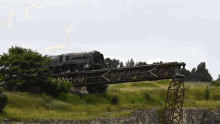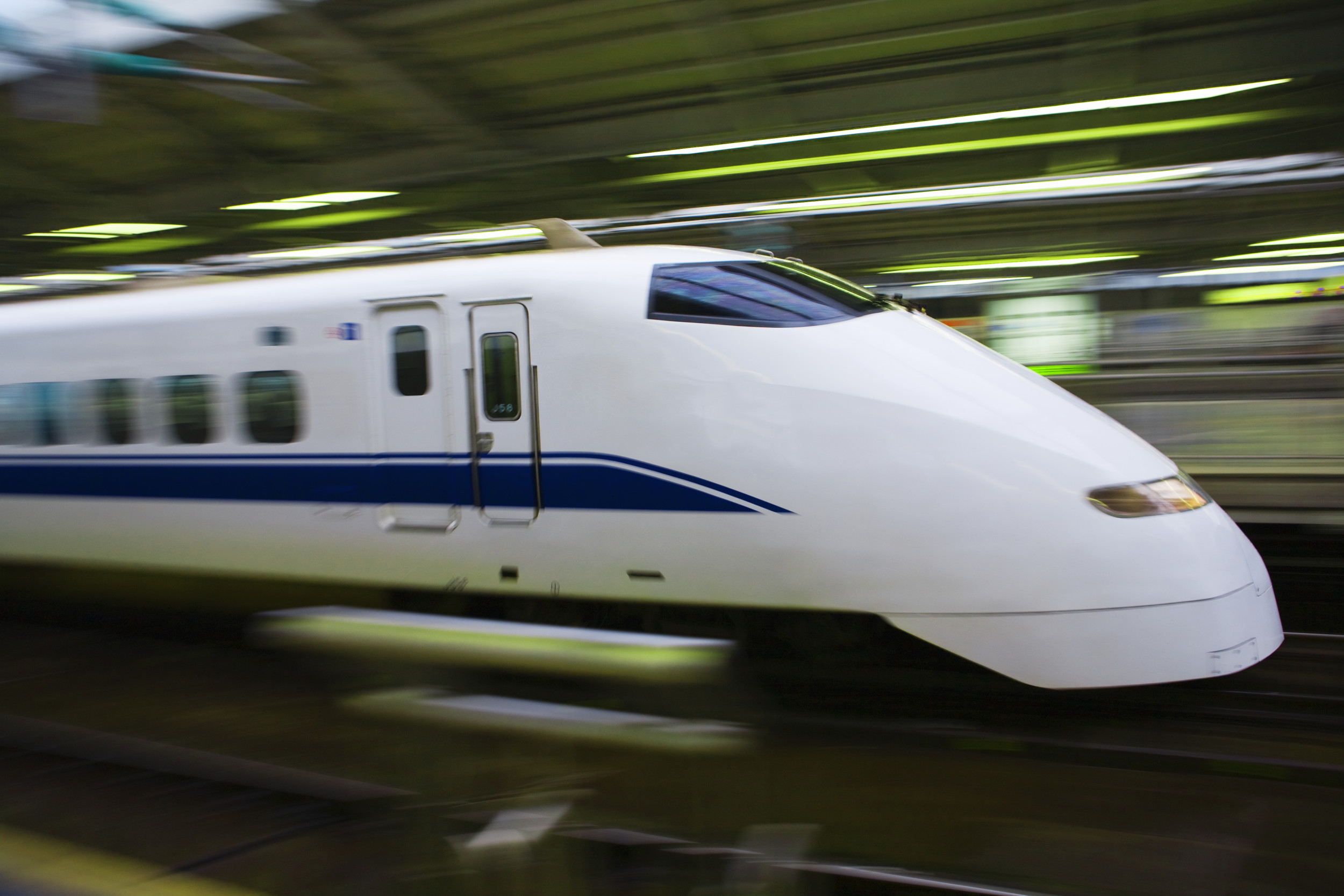A $63.9 million cut raises questions about the Trump administration's commitment to high-speed rail.

www.newsweek.com
Texas High Speed Rail Plan Issued Blow From Trump Administration
Tuesday at null
Timelapse Video Shows California High-Speed Rail Route
By
James Bickerton
US News Reporter
Plans for a new 240-mile high speed rail line between Dallas and Houston in Texas suffered a blow on Monday when U.S. Department of Transportation Secretary Sean P. Duffy announced an agreement to provide $63.9 million in federal funding for the project had been scrapped.
Newsweek contacted Amtrak and Texas Central, who together are overseeing the project, for comment via email on Tuesday outside of regular office hours.
Why It Matters
The past few years have seen a renaissance for high-speed rail in the United States with a number of new lines being proposed, while
construction has begun on tracks linking San Francisco to Los Angeles in California and Las Vegas in Nevada to Cucamonga, southern California.
The Biden administration was supportive of high-speed rail projects, with then-Transportation Secretary
Pete Buttigieg in April 2024 saying the
proposed line from Dallas to Houston "makes me very excited." Monday's announcement suggests this level of backing might not continue under the Trump administration.
What To Know
On Monday the Department of Transportation announced the scrapping of a $63.9 million grant to Amtrak from the Federal Railroad Administration (FRA). The grant, which had been
announced in September 2024, was described by Transportation Secretary Duffy as "a waste of taxpayer funds."
The money had been granted to the Texas Central Railway project, since renamed as the Amtrak Texas High-Speed Rail Corridor, from the FRA's corridor identification and development program.
The proposed high-speed rail line linking Dallas and Houston was initially proposed by Texas Central, a private group. Texas Central went on to announce a collaboration with national passenger railroad company Amtrak, which has since taken the lead over the project.
In a press release the Department of Transportation said: "This project was originally announced as a purely private venture, but as the cost estimates dramatically ballooned, the Texas Central Railway proposal became dependent on Amtrak and federal dollars for development work.
This undated stock photograph shows a high speed train in Himeji in Japan. John W. Banagan/GETTY
"The project capital cost is now believed to be over $40 billion—making construction unrealistic and a risky venture for the taxpayer."
The statement said Amtrak has "struggled with significant operating deficits" since the coronavirus pandemic and said that "under the previous administration" it "considered massive loans underwritten by the federal government, along with additional grants, as the only way to spur construction activities."
Consequently: "Walking away from the Texas Central Railway project at this time will allow Amtrak to focus on necessary improvements to deliver more reliability to its current riders."
According to developers the proposed Dallas to Houston line, to be based around Japanese Shinkansen technology, could slash journey times between Texas' two biggest cities to 90 minutes. Amtrak predicted the line would reduce the number of cars traveling on Interstate 45 by 12,500 per day and cut annual greenhouse gas emissions by over 100,000 tons.
What People Are Saying
Transportation Secretary Duffy said: "I am pleased to announce that FRA and Amtrak are in agreement that underwriting this project is a waste of taxpayer funds and a distraction from Amtrak's core mission of improving its existing subpar services.
"The Texas Central Railway project was proposed as a private venture. If the private sector believes this project is feasible, they should carry the pre-construction work forward, rather than relying on Amtrak and the American taxpayer to bail them out. My department will continue to look for every opportunity to save federal dollars and prioritize efficiencies."
FRA chief counsel Kyle Fields commented: "Connecting Dallas and Houston remains one of the more exciting opportunities for new passenger rail in the United States.
"Today's announcement reflects a recognition by Amtrak and FRA that federalizing the Texas Central Railway proposal is not the best use of taxpayer funding."
In a statement provided to Newsweek Kleinheinz Capital Partners, the lead investment sponsor in Texas Central, said: "We are proud to have stepped in as the private sector sponsor of the Texas high-speed rail, and today's announcement is good news for the overall project.
"The first Trump Administration gave this project the green light, but after President Trump left office the project got hung up in the politics of the Biden Administration's efforts to jam Amtrak and politics into the equation. We agree with Secretary Duffy that this project should be led by the private sector, and we will be proud to take it forward. This project is shovel-ready and will create significant new jobs and economic growth for Texas as part of President Trump's efforts to boost the U.S. economy."
What Happens Next
The FRA grant made up only a small chunk of Amtrak Texas High-Speed Rail Corridor's estimated cost, and the project could still go ahead with the support of private investors. However, these will likely prove harder to attract without any underwriting from the federal government.
Update 4/15/25, 11:26 a.m. ET: This story has been updated with comment from Kleinheinz Capital Partners.
 what about the checks and balances.
what about the checks and balances.



